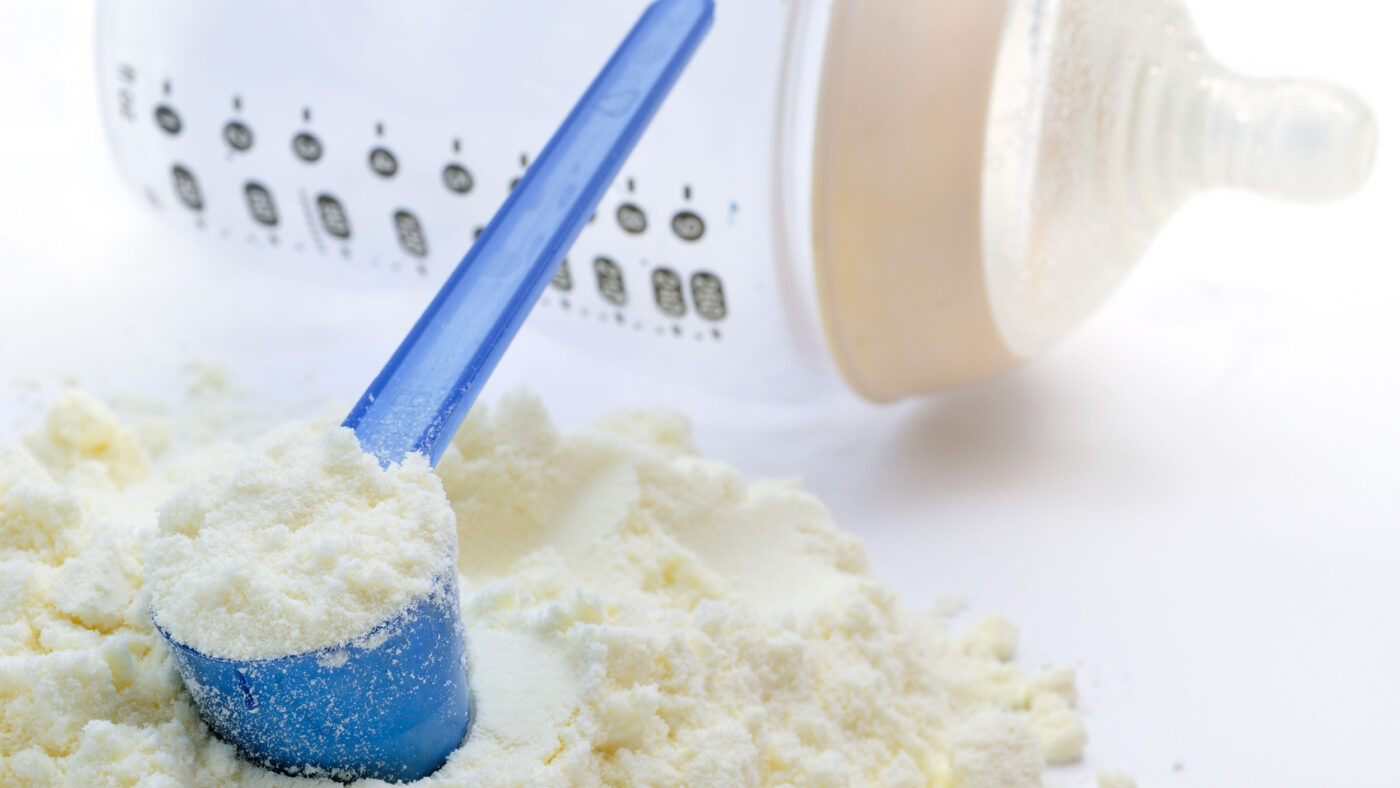From cigarettes and alcohol to sugar and salt, there is no shortage of guilty pleasures that nanny statists want to restrict, ban or tax to excess. But while free marketeers should always be willing to defend the principles of personal responsibility and bodily autonomy, most of us would at least acknowledge that each of these products can cause considerable harm if consumed too much.
So amidst the public health lobby’s calls for greater regulation of supposedly sinful substances, it is a peculiarity that one of the already most strongly regulated items in UK shops doesn’t carry any serious health risks at all – indeed, it is an absolute necessity for many thousands of people every year. I’m talking about baby formula milk.
Using formula, as opposed to breastfeeding, is incredibly common in the UK. According to BPAS, only 20% of babies are exclusively breastfed by three months of age, and only 1% by six months. There’s nothing wrong with breastfeeding, of course – many mothers extol its virtues, and good for them.
Parents choose formula for all sorts of reasons: some women can’t breastfeed for medical reasons; others simply choose not to. I remember well the delight I felt at being able to bottle feed my daughter when my wife wasn’t able to breastfeed anymore – it was the first time I felt like I was an equal after months of someone else taking the burden. Whatever the reason, formula feeding is a perfectly valid choice.
But the Government clearly doesn’t see it like that. Infant formula milk – a lifeline for millions – cannot be advertised for babies up to six months old, nor can special offers or discounts, and customers cannot use loyalty points, gift cards or food bank vouchers to purchase it. With a tub of formula milk adding around £14.50 to a weekly shop, government policy on formula has a detrimental financial impact on those least able to bear it.
And why? Because the Government has swallowed wholesale the position of the World Health Organization – which has a less than impressive record of dispensing advice – that breastfeeding must be defended and promoted no matter what. Every pack of infant formula sold in the UK has to carry the advice that breastfeeding is better.
It is a received wisdom that breastfeeding young babies leads to better health and development outcomes. There is some evidence to back this up, but the science is somewhat less clear once you control for other factors like parents’ income and education level. Concerns about using formula in developing countries, where clean water is not a given, are valid, but they don’t apply to a country with the sanitation levels we have in the UK.
The consequence of our current regulations is not really to prevent formula feeding, but to inflate its price and discourage innovation in improving its quality. Worse than that, it contributes to a stigma whereby new mothers who cannot or do not breastfeed are made to feel that they are somehow failing their children. Perinatal mental health is already extremely fragile – do we really want to use this as a stick to beat new mums with?
Three cheers then for Iceland boss Richard Walker who has taken a stand against these ludicrous restrictions and announced that his supermarket will promote discounts on formula and allow customers to purchase it with points. Absurdly, Iceland faces an unlimited fine for making a safe but expensive product more readily available.
But while it’s great that a big brand is bringing this issue to public attention, it really shouldn’t take open flouting of the law to sort it out. If the Government really believes that breastfeeding is the preferable choice then it should continue to issue guidance to that effect, but it doesn’t have to distort the market so wildly against formula through the heavy hand of the law.
The Infant Formula and Follow-on Formula (England) Regulations 2007, which embed these punitive restrictions, should be in politicians’ crosshairs. Let’s give parents morally neutral and scientifically rigorous information, and let them decide what’s right for them and their kids. It’s time we had a freer and more proportionate approach and stopped treating formula feeding like it’s something to be ashamed of.
Click here to subscribe to our daily briefing – the best pieces from CapX and across the web.
CapX depends on the generosity of its readers. If you value what we do, please consider making a donation.


